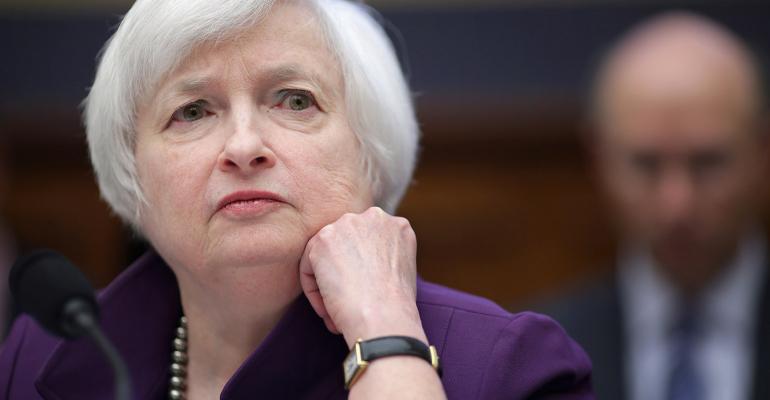Most advisors expect the Federal Reserve to raise interest rates 25 basis points on Wednesday, in line with most analysts’ predictions, and they don’t believe the Fed’s announcement will have a significant impact on the markets. But advisors said they’d be more concerned if the Fed didn’t raise rates this week, or if the agency takes a more aggressive approach.
“Since this expected announcement has been telegraphed to the market, I wouldn’t expect a significant reaction,” said Marc Pfeffer, senior portfolio manager at CLS Investments in Omaha, Neb. “Personally, I believe it would be more of a negative to both the equity markets and the long-end of the treasury market if they decided not to raise.”
SIFMA’s Economic Advisory Roundtable anticipates an interest rate hike of 25 basis points this week, with survey respondents citing improving labor conditions, readings of financial developments and inflation or inflationary expectations.
“They have built up such a high level of expectation about raising rates that they are backed into a corner,” said Larry Stein, president of Disciplined Investment Management in Deerfield, Ill. “If they choose not to raise rates, it may be taken as a tremendous lack of confidence in the U.S. economy, and stocks may plunge.”
If the Fed raises rates, this would be a positive statement about the economy, causing markets to improve, Stein said. But this depends on how the Fed characterizes their plans going forward.
Kris Maksimovich, president of Global Wealth Advisors in Dallas, also said he’d be concerned if there were no rate hike.
“More important than what the Fed does is what it says this time,” Maksimovich said. “If the language used indicates gradual hikes throughout the year as opposed to a ‘one and done, wait and see’ type approach in the face of what looks like a slowing global economy, that could lead to a decline in equities markets.”
John Kleponis, chief investment officer at Yosemite Capital Management in Tustin, Calif., expects the Fed to raise rates to between 25 and 50 basis points. But investors should be looking out for how the next rate increases take place.
“I do not perceive a series of rate increases as in prior cycles,” Kleponis said. “Instead my guess is after the first one there will be only one or two rate hikes in 2016. This is because the domestic economy and inflation will likely continue to be constrained by the global economy, specifically China's rate of deceleration and its transition to internal growth as well as the continuing economic malaise in the Eurozone.”
Bill DeShurko, portfolio manager at 401 Advisor, LLC in Centerville, Ohio, also anticipates a 25-basis-point hike, but he doesn’t expect a positive impact on the U.S. economy until rates get to 75 or 100 basis points.
“Ultimately, if we get to 1 percent or so, the effect will be positive on the economy,” DeShurko said. “Real interest rates will put an end to the high leverage financial engineering, [high frequency trading], hedge fund leverage etc., and force investors to look for real investments for their capita.”
But Gary Harloff, founder and owner of Harloff Capital Management in Westlake, Ohio, predicts a 5 percent gain in the S&P 500 and a decline in the bond market this week, if the Fed takes action.
Michael McKeown, chief investment officer of Aurum Wealth Management Group in Mayfield Village, Ohio, said we’ll have to wait until late next year to see the impact of the Fed’s actions.
“Since monetary policy affects the economy with a lag, the second half of 2016 and 2017 will be telling as to whether this economic expansion will continue,” McKeown said. “Clients will see increased volatility compared to the previous five years in bonds, yet will benefit from rising yields over time in duration-targeted portfolios.”





